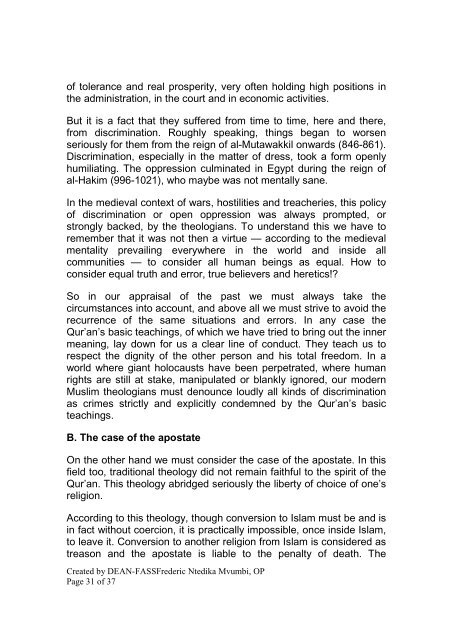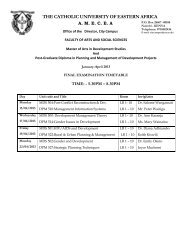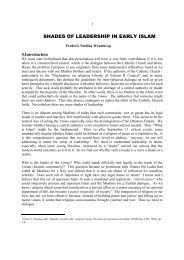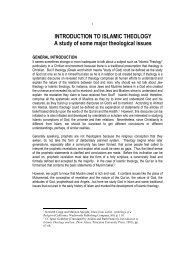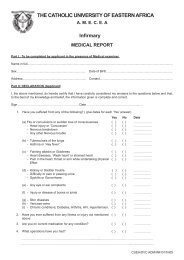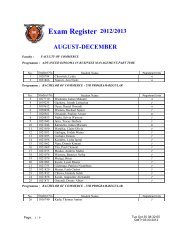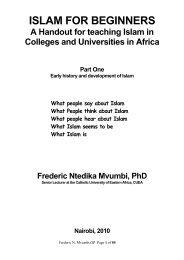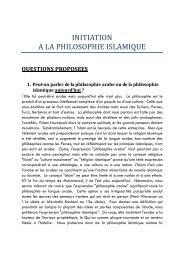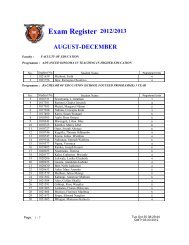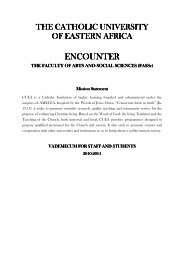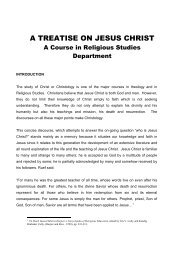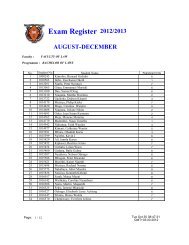PRINCIPLES FOR INTERRELIGIOUS DIALOGUE.pdf - CUEA
PRINCIPLES FOR INTERRELIGIOUS DIALOGUE.pdf - CUEA
PRINCIPLES FOR INTERRELIGIOUS DIALOGUE.pdf - CUEA
You also want an ePaper? Increase the reach of your titles
YUMPU automatically turns print PDFs into web optimized ePapers that Google loves.
of tolerance and real prosperity, very often holding high positions in<br />
the administration, in the court and in economic activities.<br />
But it is a fact that they suffered from time to time, here and there,<br />
from discrimination. Roughly speaking, things began to worsen<br />
seriously for them from the reign of al-Mutawakkil onwards (846-861).<br />
Discrimination, especially in the matter of dress, took a form openly<br />
humiliating. The oppression culminated in Egypt during the reign of<br />
al-Hakim (996-1021), who maybe was not mentally sane.<br />
In the medieval context of wars, hostilities and treacheries, this policy<br />
of discrimination or open oppression was always prompted, or<br />
strongly backed, by the theologians. To understand this we have to<br />
remember that it was not then a virtue — according to the medieval<br />
mentality prevailing everywhere in the world and inside all<br />
communities — to consider all human beings as equal. How to<br />
consider equal truth and error, true believers and heretics!?<br />
So in our appraisal of the past we must always take the<br />
circumstances into account, and above all we must strive to avoid the<br />
recurrence of the same situations and errors. In any case the<br />
Qur’an’s basic teachings, of which we have tried to bring out the inner<br />
meaning, lay down for us a clear line of conduct. They teach us to<br />
respect the dignity of the other person and his total freedom. In a<br />
world where giant holocausts have been perpetrated, where human<br />
rights are still at stake, manipulated or blankly ignored, our modern<br />
Muslim theologians must denounce loudly all kinds of discrimination<br />
as crimes strictly and explicitly condemned by the Qur’an’s basic<br />
teachings.<br />
B. The case of the apostate<br />
On the other hand we must consider the case of the apostate. In this<br />
field too, traditional theology did not remain faithful to the spirit of the<br />
Qur’an. This theology abridged seriously the liberty of choice of one’s<br />
religion.<br />
According to this theology, though conversion to Islam must be and is<br />
in fact without coercion, it is practically impossible, once inside Islam,<br />
to leave it. Conversion to another religion from Islam is considered as<br />
treason and the apostate is liable to the penalty of death. The<br />
Created by DEAN-FASSFrederic Ntedika Mvumbi, OP<br />
Page 31 of 37


